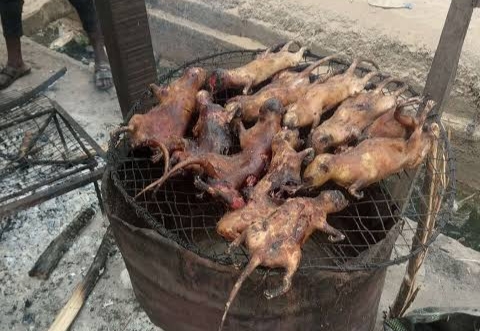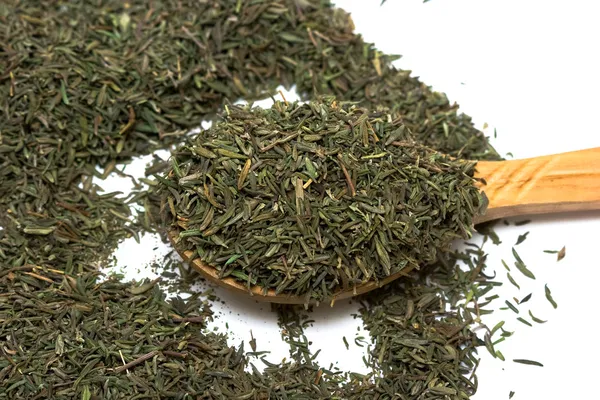Bushmeat is prevalent in Nigeria. It is considered normal to eat wildlife animals, though not every animal. Bushmeat is a collective name for the meat of wild animals killed for food by hunters in many parts of Africa. Some common bushmeats are meats gotten from grasscutter, squirrel, monkey etc.
Some ethnic group forbids eating certain types of animals even though other ethnic groups within the country may consider such animals as bushmeat. Most times, this constraint on the kind of bushmeat permissible is never based on any scientific reason but merely on superstition.
But whatever is the case, bushmeat is incredibly popular in Nigeria, and just about everyone in the country has consumed a wildlife animal at one point or another in their lives.
Is bushmeat healthy and safe?
According to food standards experts, bushmeat is as harmless to eat as any other meat if it is properly cooked.
A study by the Food Standards Agency says that the meat is harmless to eat when cooked correctly. However, there is an extremely small risk of infection if it is not adequately cooked.
In this post, we’ll look at the health benefits of bushmeats and the health implications of this kind of meat, as well as how they may significantly affect your health negatively.
Health Benefits Of Bushmeats

Bushmeat is just like any other meat, even though they are gotten from wild animals, including endangered species. Bushmeat is an excellent source of protein and numerous vitamins and minerals, such as iron, zinc, vitamin B12, niacin, and selenium. The following are some of the likely health benefits of bushmeat.
An essential source of protein
Protein is one of the essential nutrients that the body needs to grow and repair worn-out tissues in the body. Protein is also necessary for enzymes and hormone synthesis in the body.
While there are many ways to get protein, animal protein is different from plant protein, and most times, the only way to get those types of protein is from eating other animals. In rural Nigeria, one of the easiest and cheapest means for people to access a healthy amount of protein to meet their body needs is through hunting games.
This is because not many people are financially buoyant to spend money on buying meats in rural areas.
Excellent source of organic meats
Most people are worried about the health implications of eating meats from domestically grown animals. Often, these animals are fed different chemicals to increase meat production, and really, most people are skeptical about the long-term implications of these chemicals.
On the other hand, wild animals eat natural green vegetation, and their meats are all-natural. And since they constantly exercise in the wild, they have lesser saturated fats and are better for your heart than most homegrown animals.
Side Effects Of Bushmeats
The side effects of bushmeat may arise when the hunting, transportation, handling, and cooking practices do not follow appropriate food safety practices.
Easy disease cross-over to humans
When it comes to eating meats from wildlife animals, one of the most factors to consider is the ease of disease cross-over from these animals to the human body. According to a study, common zoonotic diseases can be gotten from eating bushmeats.
For instance, contact with sick chimpanzees or gorillas has been heavily linked with ebola cross over from these animals into the human race.
Also, studies have shown that the most commonly consumed animals in Nigeria, such as the squirrel, are reservoirs of different disease pathogens, especially the monkeypox virus, which can easily be transmitted to human hosts if they are not handled or prepared correctly.
A study also showed that approximately 60 percent of all human diseases were transmitted from animals to humans, of which about 70 percent originate from contact with wild animals.
Killing of endangered species
Most game meats are from endangered animal species that are killed by hunters. The practice of bushmeat hunting has led to the killing of many animals and some endangered species.
Ingesting lead bullet fragments
Aside from the danger of disease spilling over from handling or eating poorly prepared wildlife animals, another health risk you might want to concern yourself with is the risk of ingesting tiny fragments of the lead bullets used in hunting these animals.
Though ingesting a few fragments of these lead bullets used in killing the animal may not have any immediate effect on your health, consuming them over time can lead to an accumulation of lead in your body which can affect your body’s regular metabolism as well as the central nervous system and the brain’s functioning.
Conclusion
Bushmeats provide some of the best organic meats with loads of nutritional benefits. And in rural areas, bushmeats are the cheapest source of proteins for locals. However, they must be handled properly, and the meat must be cooked thoroughly to prevent disease cross over from animals to humans.
Collins Nwokolo is a human physiologist, writer and health enthusiast. He loves writing helpful articles on health and fitness, which he enjoys sharing with everyone.







